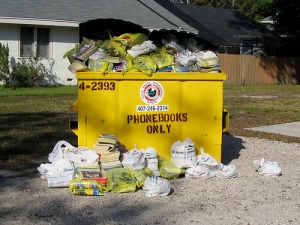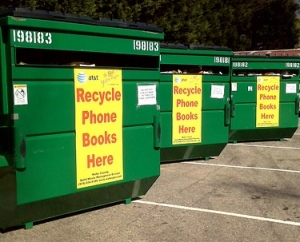Phone books are less of a waste of paper today than in the past, but they are still far from being a valuable resource. Even though the phone book industry’s consumption of trees has been reduced thanks to recycling, the equivalent of five million trees a year still get cut down just to produce White Pages. In addition to the paper that they consume, phone books also damage the environment through the fuel used to run the vehicles that deliver them.

Given the prevalence of internet connections on desktop computers, notebook computers, video game systems, tablets and smartphones, the phone book is a product whose time has passed. Acknowledging this, the phone book-printing industry has created a website to allow customers to opt-out of receiving phone books. Going beyond the industry’s attempts, a number of third-party sites have sprouted up across the Internet to call for a complete end to the printing of White and Yellow Pages.

Those who receive undesired books can easily recycle them. Because they are printed on regular paper with non-toxic inks, they are easy for the recycling industry to accept and re-purpose into such things as egg cartons and cereal boxes. Recycling phone books helps save trees and minimize the environmental impact of phone directory printing.

0 Comments